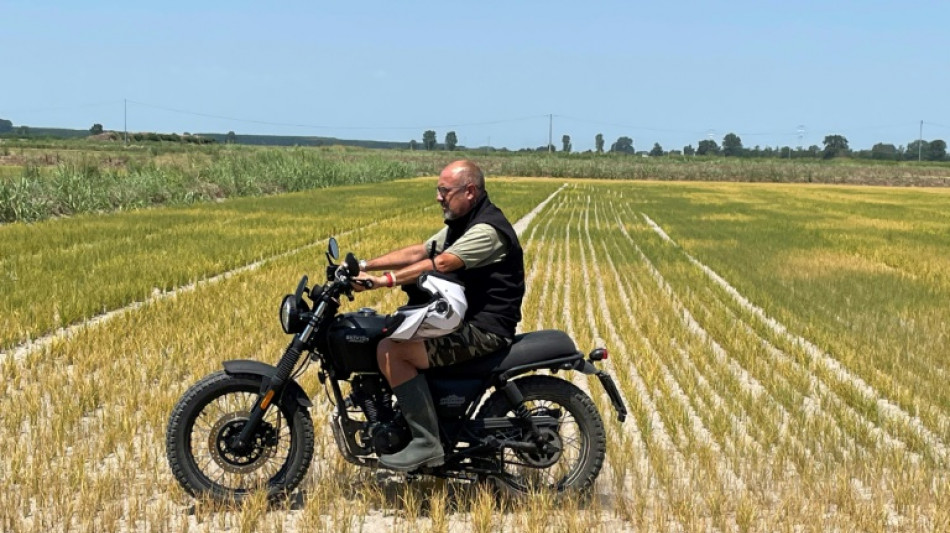
-
 Gu reaches Olympic halfpipe final after horror crash mars qualifiers
Gu reaches Olympic halfpipe final after horror crash mars qualifiers
-
Keller overtime strike gives USA Olympic women's ice hockey gold

-
 NASA delivers harsh assessment of botched Boeing Starliner test flight
NASA delivers harsh assessment of botched Boeing Starliner test flight
-
US Fed Governor Miran scales back call for rate cuts this year

-
 Gu qualifies for Olympic halfpipe final marred by horror crash
Gu qualifies for Olympic halfpipe final marred by horror crash
-
Trump issues Iran with ultimatum as US ramps up military presence

-
 Peru's brand-new president under fire for child sex comments
Peru's brand-new president under fire for child sex comments
-
UK police hold ex-prince Andrew for hours in unprecedented blow

-
 Former Olympic freeski halfpipe champion Sharpe crashes heavily
Former Olympic freeski halfpipe champion Sharpe crashes heavily
-
Former Olympic champion Sharpe suffers heavy halfpipe crash

-
 Belarus says US failed to issue visas for 'Board of Peace' meeting
Belarus says US failed to issue visas for 'Board of Peace' meeting
-
Forest boss Pereira makes perfect start with Fenerbahce rout in Europa play-offs

-
 Alcaraz fights back to book last four berth in Qatar
Alcaraz fights back to book last four berth in Qatar
-
England captain Itoje warns of 'corrosive' social media after abuse of Ireland's Edogbo

-
 War-weary Sudanese celebrate as Ramadan returns to Khartoum
War-weary Sudanese celebrate as Ramadan returns to Khartoum
-
Townsend expects recalled Scotland duo to shine in Six Nations clash with Wales

-
 Peru's new president under fire for child sex comments
Peru's new president under fire for child sex comments
-
UK king opens London fashion week despite brother's arrest

-
 Belarus frees opposition politician Statkevich
Belarus frees opposition politician Statkevich
-
Striking Argentine workers slow down Buenos Aires in protest over labor reforms
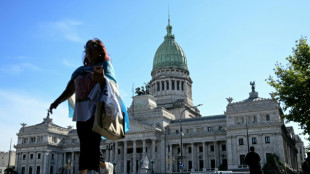
-
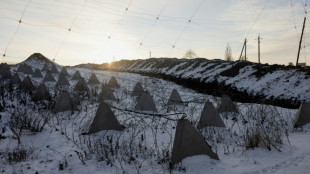 Starlink loss a blow to Russian forces in Ukraine: experts
Starlink loss a blow to Russian forces in Ukraine: experts
-
UN's Sudan probe finds 'hallmarks of genocide' in El-Fasher
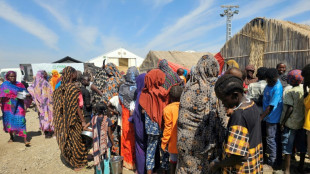
-
 Belarus frees opposition politician Statkevich: wife
Belarus frees opposition politician Statkevich: wife
-
Rocket re-entry pollution measured in atmosphere for first time

-
 Airbus ready to build two new European fighters if countries want
Airbus ready to build two new European fighters if countries want
-
Canada makes push to attract skilled migrants, including for defence

-
 US threatens to leave IEA if net zero focus remains
US threatens to leave IEA if net zero focus remains
-
Walmart outlines big AI ambitions as it reports mixed results

-
 Trump kicks off his 'Board of Peace,' as war clouds loom on Iran
Trump kicks off his 'Board of Peace,' as war clouds loom on Iran
-
UK pubs to stay open late if home nations reach World Cup knockouts

-
 TotalEnergies in high-stakes French trial over climate change
TotalEnergies in high-stakes French trial over climate change
-
Bosnia probes fascist salutes at Croatian singer's concert

-
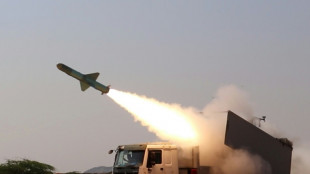 US and Israel issue dire warnings to Iran alongside US military buildup
US and Israel issue dire warnings to Iran alongside US military buildup
-
British public cheer Andrew's arrest with a smile and relief
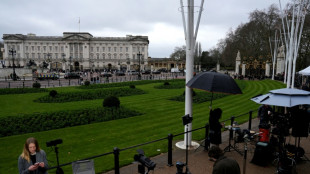
-
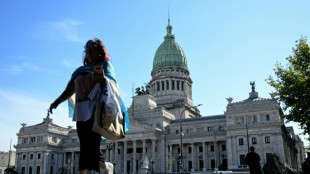 Argentine workers go on strike to protest Milei's labor reforms
Argentine workers go on strike to protest Milei's labor reforms
-
Nakai targets Olympic skating upset as 'skimo' makes debut

-
 What we know about ex-prince Andrew's friendship with Epstein
What we know about ex-prince Andrew's friendship with Epstein
-
US trade deficit in goods widens to new record in 2025
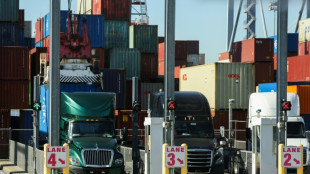
-
 Oil extends gains on US-Iran tensions, stocks retreat
Oil extends gains on US-Iran tensions, stocks retreat
-
Williams 'on the back foot' after missing Barcelona: Albon

-
 Real Madrid submit evidence to UEFA in Vinicius racism probe
Real Madrid submit evidence to UEFA in Vinicius racism probe
-
Olympics rev up Milan's renewal but locals fear price to pay

-
 Cardona Coll, Fatton win Olympic-debuting ski mountaineering sprint golds
Cardona Coll, Fatton win Olympic-debuting ski mountaineering sprint golds
-
MSF will keep operating in Gaza 'as long as we can': mission head

-
 Russian Filippov wins first medal at Milan-Cortina Games for individual neutral athletes
Russian Filippov wins first medal at Milan-Cortina Games for individual neutral athletes
-
Italian Milan takes sprint honours at UAE Tour

-
 Dozens killed in jihadist attacks in northwest Nigeria
Dozens killed in jihadist attacks in northwest Nigeria
-
Zimbabwe unbeaten in T20 World Cup after six-wicket Sri Lanka win

-
 Postecoglou admits taking Nottingham Forest post a 'bad decision'
Postecoglou admits taking Nottingham Forest post a 'bad decision'
-
Switzerland's Fatton wins women's ski mountaineering sprint on Olympic debut


Italy's famous Po Valley rice paddies decimated by drought
The roar of Dario Vicini's motorcycle cuts through the silence as he drives across his rice paddy to survey the destruction wrought by Italy's worst drought in 70 years.
His fields are nothing but desolation, with rice stems slowly dying in the sandy ground.
"Under normal circumstances, I would never have been able to ride my motorcycle over the field," Vicini explained to AFP.
"At this time of year, the plants would be up to my knees and the rice field would be flooded," he said.
"Here, they're tiny, because the water needed to irrigate them has never arrived."
Vicini's "Stella" farm, located in the village of Zeme in the Po Valley, 70 kilometres (43 miles) southwest of Milan, is part of Italy's "golden triangle" of rice paddies.
Europe's leading rice-growing region -- which supplies Italy and the world with the country's famous arborio for risotto and many other varieties -- stretches west from Pavia in Lombardy to Vercelli and Novara in Piedmont.
Vicini said the area's last "decent rain" came in December.
"It's the fault of climate change," said the 58-year-old farmer, who estimates his income has fallen by 80 to 90 percent.
Enrico Sedino, another farmer in the area, is even more worried.
"If there's no more water, I can lose up to 100 percent of my turnover," he said.
Around the rice paddies, cracks are visible in the parched earth and the feeble, stunted rice shoots are covered with a thin layer of dust.
The small irrigation canals that run alongside the fields are dry, or nearly so.
The waters of the Po River -- Italy's longest river whose flat drainage basin is the wide, fertile plain perfect for growing rice -- are this year at a historically low level not seen since 1952.
The water, when it comes, arrives in dribs and drabs.
- Lunar landscape -
Zeme Mayor Massimo Saronni, a rice farmer himself for three decades, said that not only is the harvest suffering "but the whole ecosystem is withering away".
Before, the rice paddies resounded with the song of crickets and the croaking of frogs, while clouds of dragonflies flittered above the fields. Freshwater birds like grey herons and white ibises fed on insects.
Now, "being in the countryside with such a heavy silence, it's depressing, you feel like you're on the moon!" he said.
Vicini's 50 hectares are irrigated through the Cavour Canal, which carries the waters of the Po, while other rice paddies in the Pavia region are fed by Lake Maggiore or Lake Como.
But regional authorities have warned that those lakes' reserves could run out by the end of July.
Early this month, Italy's national government declared a state of emergency in five regions -- Emilia-Romagna, Friuli-Venezia Giulia, Lombardy, Veneto and Piedmont -- four of which are supplied by the Po.
Farmers are forced to abandon some fields to deal with others. "just like the doctor who during the Covid-19 pandemic chose those with a chance of being saved," Saronni noted, bitterly.
- 'Apocalyptic' -
The Po's historically low water levels have had catastrophic consequences for Italy's more than 4,000 rice farms, spread over 220,000 hectares (543,630 acres).
Sixty percent of the 1.5 million tonnes of rice produced in Italy each year are exported. Among the more than 200 varieties are the famous Carnaroli, Arborio, Roma and Baldo brands, essential for the preparation of typical risotto dishes.
Rice consumption rose in 2020 when millions of Italians were forced by the coronavirus lockdown to cook at home.
But now, the country risks a rice shortage, warned Stefano Greppi, president of Pavia's branch of Italy's agricultural association Coldiretti.
"The situation is desperate, not to say apocalyptic," said the rice farmer, estimating the economic damage as "incalculable... millions of millions of euros".
"If there is no harvest this year, there is a risk that many companies will close down or go bankrupt".
G.Stevens--AMWN


